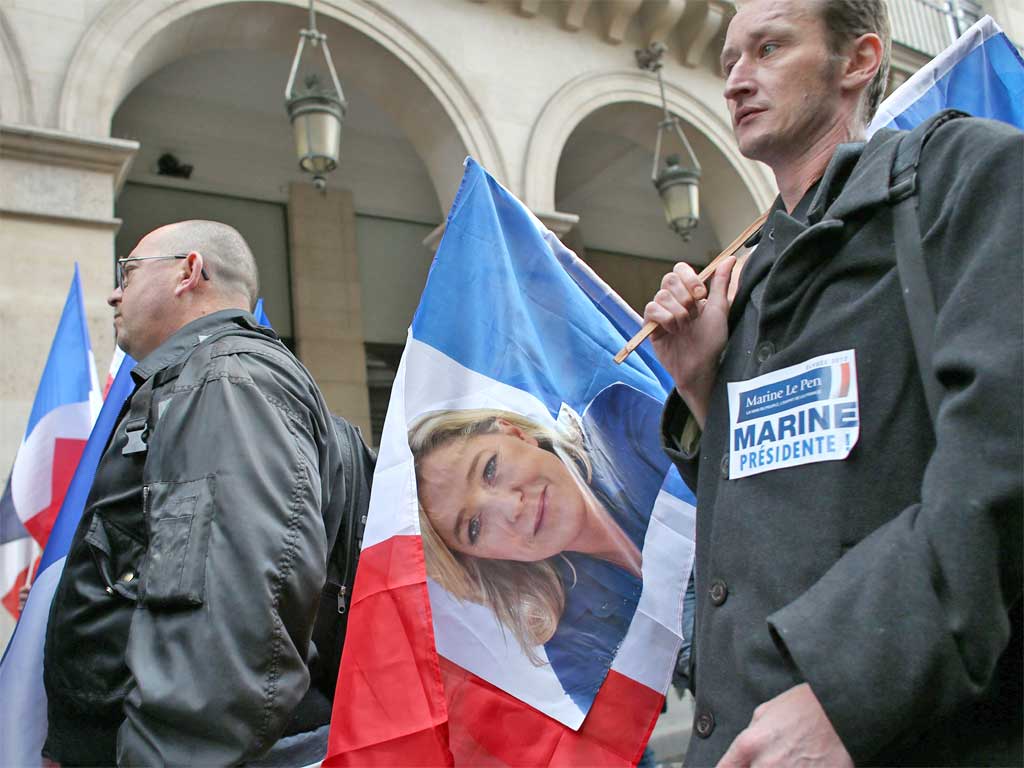John Lichfield: President Hollande's first task? Reuniting a fragmented France
World Focus: In Normandy, Brittany, the South and other parts of deepest France, hundreds of villages voted for Le Pen

Whichever candidate wins the presidential election this weekend faces a Humpty-Dumpty problem. How do you "put back together again" the fractured France revealed in the compelling, but scary, small-print of the first round vote on 22 April?
France emerged as a country divided between town and country, between men and women, between young and old. Above all, it emerged as a France "on broadband" and a France "off broadband": an outward-looking and forward-looking, urban and suburban France (not always young) and an inward and backward-looking, anxious, rural and blue collar France (not always old).
The "on-broadband" versus "off- broadband" divide cuts across boundaries of left and right. The "broadbanders" are, roughly speaking, pro-European, though not necessarily happy with the present economic policies of the European Union. They acknowledge that France must remain open to a changing world. They do not necessarily swallow the market fundamentalism of the last three decades.
The "off-broadbanders" are usually Eurosceptic or Euro-hostile. They believe there was a better France before immigrants or free trade or both. They believe that France should somehow declare unilateral independence from Europe and the globalised world. The "off-broadbanders" voted for Marine Le Pen's far right or for the anti-capitalist candidates of the far left. Anti-system candidates took almost one in three votes last Sunday week.
A partial correlation between the spread of broadband internet in France and the electoral map was revealed by the first-round vote.
In bigger towns and cities, from Paris to Lyon to Lille, the Le Pen vote retreated. In Normandy, Brittany, the South and in other parts of La France Profonde, hundreds of villages gave higher scores than ever before to Marine's kinder, gentler version of her father's xenophobic far right. The electoral map is even more fragmented than that. In rural areas in the West, most towns, including small towns, voted 12 per cent or less for Marine Le Pen. Neighbouring villages, most of them literally without broadband internet, voted up to 30 per cent. The national vote for Le Pen was 17.9 per cent.
The dominant issue is a sense of loss – loss of population; loss of jobs; loss of small farms; loss of schools and post-offices; loss of local identity as the weed of suburban development spreads from larger towns.
Something similar can be seen in the 11 per cent vote for the Eurosceptic, anti-free trade, far-left candidate, Jean-Luc Mélenchon. Although popular in the bohemian areas of large cities, Mr Mélenchon did best in the distressed working class and multi-racial suburbs of big towns and in devastated industrial and former industrial areas in the North.
In 2007, Nicolas Sarkzoy campaigned mostly as a new, modern, outward-looking and urban kind of leader. In 2012, especially since the high far right vote in the first round, he has campaigned as the man who will restore French frontiers, French pride and French identity.
François Hollande, the Socialist front-runner, has his political base in the rural South-west. He probably understands the broadband-non-broadband divide better than Mr Sarkozy. He insists he will help struggling areas by halting Mr Sarkozy's cuts in public spending and adding growth policies to the all-austerity approach to the euro crisis.
Whichever candidate wins will not find it easy to "put together again" the Humpty Dumpty of a fractured France.

Join our commenting forum
Join thought-provoking conversations, follow other Independent readers and see their replies